This week is another double Torah portion covering both Torah Parsha Acharei Mot as well as Torah Parsha Kedoshim…
Acharei Mot (אַחֲרֵי מוֹת) — Hebrew for “after the death” or “after,” the fifth and sixth words or the fifth word, and the first distinctive word or words, in the parashah) is the 29th weekly Torah portion (פָּרָשָׁה, parsha) in the annual cycle of Torah reading and the sixth in the Book of Leviticus. The parashah sets forth the law of the Yom Kippur ritual, centralized offerings, blood, and sexual practices. It constitutes Leviticus 16:1–18:30
Kedoshim (קְדֹשִׁים)— Hebrew for “holy ones,” the 14th word, and the first distinctive word, in the parashah) is the 30th weekly Torah portion (פָּרָשָׁה, parashah) in the annual cycle of Torah reading and the seventh in the Book of Leviticus. It constitutes Leviticus 19:1–20:27
 Parsha Acharei Mot – Kedoshim Summary
Parsha Acharei Mot – Kedoshim Summary
Leviticus 16:1–20:27
Following the deaths of Nadav and Avihu, God warns against unauthorized entry “into the holy.” Only one person, the kohen gadol (“high priest”), may—but once a year, on Yom Kippur—enter the innermost chamber in the Sanctuary to offer the sacred ketoret to God.
Another feature of the Day of Atonement service is the casting of lots over two goats, to determine which should be offered to God and which should be dispatched to carry off the sins of Israel to the wilderness.
The Parshah of Acharei also warns against bringing korbanot (animal or meal offerings) anywhere but in the Holy Temple, forbids the consumption of blood, and details the laws prohibiting incest and other deviant sexual relations.
The Parshah of Kedoshim begins with the statement: “You shall be holy, for I, the L‑rd your God, am holy.” This is followed by dozens of mitzvot (divine commandments) through which the Jew sanctifies him- or herself and relates to the holiness of God.
These include: the prohibition against idolatry, the mitzvah of charity, the principle of equality before the law, Shabbat, sexual morality, honesty in business, honor and awe of one’s parents, and the sacredness of life.
Also in Kedoshim is the dictum which the great sage Rabbi Akiva called a cardinal principle of Torah, and of which Hillel said, “This is the entire Torah, the rest is commentary”—“Love your fellow as yourself.”
The Hierarcy of Holiness
There is a progression in one’s spiritual walk toward holiness that I revealed in previous years, revealing the upward growth one goes through after coming out of the world’s ways and coming into a knowledge of the basic instruction provided Torah, and then changing not only our outward behavior and actions but more importantly changing our thoughts from which our words and actions come from… This is what Yeshua was revealing when he said, “You have heard it said, You shall not kill, but I say to you if you are even angry with your fellow-man you have committed murder.” – Matt. 5:22
This change in thinking comes from Torah being written upon our hearts more fully… and this process of having the Torah being written upon our hearts and minds will continue to be accomplished at a higher level of holiness throughout the Messianic age of the Millennial Kingdom in fulfillment of Jeremiah 31:31-33
Behold, days are coming,” declares the Lord, “when I will make a new covenant with the house of Israel and with the house of Judah, 32 not like the covenant which I made with their fathers in the day I took them by the hand to bring them out of the land of Egypt, My covenant which they broke, although I was a husband to them,” declares the Lord. 33 “But this is the covenant which I will make with the house of Israel after those days,” declares the Lord, “I will put My law within them and on their heart I will write it; and I will be their God, and they shall be My people.
I hope the following chart is a blessing in your understanding of this as we all desire greater Holiness in our lives and being!

Haftarah
–Amos 9:7-15
This week’s haftorah foretells the exiles and punishments that will befall the Jews because they strayed after the ways of the heathens — behavior that this week’s Torah reading proscribes.
The prophet Amos delivers God‘s message, reminding the people of G‑d’s kindness to them — taking them out of Egypt and singling them out as His chosen nation. Nevertheless, because of their misdeeds, . God will destroy the Northern Kingdom of Israel; but will not completely destroy the house of Jacob. The Jews will be scattered amongst the nations, but eventually they will return to their land — on the day of the redemption. God will then reinstall the House of David to its former glory and there shall be peace and abundance upon the land.
The haftorah ends with God’s promise: “And I will return the captivity of My people Israel, and they shall rebuild desolate cities and inhabit [them], and they shall plant vineyards and drink their wine, and they shall make gardens and eat their produce. And I will plant them on their land, and they shall no longer be uprooted from upon their land, that I have given them, said the L-rd your God.”
We hope this Torah teaching blesses you in your spiritual understanding and growth! As we are solely supported by your Tzedakah, please consider supporting this ministry for the continued spread of Truth by giving a love offering here.
Torah Parsha teaching with video and audio and illustrations by Pastor Isaac. © 2017 Assembly of Called-Out Believers. Use by Permission.
Website: www.CalledOutBelievers.org.



One Comment
Parashat Kedoshim includes the famous phrase Love your neighbour as you love yourself in a section often called the Holiness Code which are a series of laws describing what is required to be holy, including many important ethical precepts.